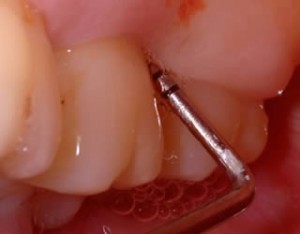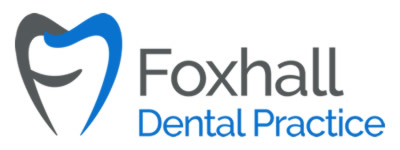The Importance Of Interdental Cleaning
This often neglected area of oral hygiene can lead to a number of problems
 When it comes to cleaning our teeth, we are probably much better at it than in the past. This is largely due to a combination of better education about its importance, as well as the widespread use of electric toothbrushes which are generally accepted to be more efficient than a manual toothbrush.
When it comes to cleaning our teeth, we are probably much better at it than in the past. This is largely due to a combination of better education about its importance, as well as the widespread use of electric toothbrushes which are generally accepted to be more efficient than a manual toothbrush.
Although cleaning our teeth is something that we do on a daily basis, possibly largely out of habit, it is worth spending a little time looking at one area of this that most of us can do much better, and that is how we clean between our teeth.
The reality is that a toothbrush, whilst being essential for good oral health, also has its limitations. There are areas where it can be difficult to reach with a toothbrush. One of these is at the back of the rear teeth, but the other is in the spaces between our teeth. This is a problem as both tooth decay and gum disease can often start there.
Gum disease
As we have mentioned before in our Foxhall Dental Practice blogs, gum disease can have a devastating effect on our oral health. Problems can range from sore, and sometimes bleeding, gums to smelly breath. If left untreated, the bacteria can work their way downwards to the roots of the tooth and also the surrounding bone tissue. When this occurs, there is a real risk that the teeth will become unstable and, in some instances, may fall out.
Tooth decay
Another problem that often starts in the area between the teeth is tooth decay. This is usually caused by a buildup of bacteria or trapped food particles that become stuck between the teeth. Using a toothpick might help to remove larger pieces of food but is unlikely to remove smaller fragments. It only takes a small amount of trapped food to break down into sugars that feed the bacteria which eat away at the tooth enamel and lead to decay and disease.
Staining and discolouration
If you don’t clean between your teeth well, you are likely to notice some significant staining in this area. This is more likely to occur on the bottom row due to gravity. Not only does this look unsightly but can indicate that there is a buildup of tartar in these areas. Tartar is a collection of bacteria and minerals that build up over time, forming a rough surface. It is this surface that enables stain producing products to attach more easily. The most effective way of removing this is through a ‘scale and polish’ procedure that can be carried out by the hygienist at our Ipswich dental facility.
Diligent interdental cleaning
Having looked at the problems caused by poor cleaning in this area, we need to look at ways to correct this. There are three things that you should do, as listed below.
Brush your teeth
Although we acknowledged earlier the limitations of a toothbrush for cleaning in this area, it is still an important thing that shouldn’t be skipped. Even though the bristles may not reach fully in the spaces between the teeth, they will help to clean this area as well as the rest of the tooth. You should also angle the bristles so that they clean into the gum line as well. There are toothpastes that ‘target’ gum disease and these help by breaking down the bacteria between the teeth and could be beneficial to use. As with all toothpastes, you should spit but not rinse after brushing to allow the toothpaste’s active ingredients to continue to do their work.
Use dental floss
We can’t encourage this enough. Not using floss is probably one of the biggest causes of interdental problems. It is cheap to buy and although it may seem a little tricky to do at first; once mastered, it will only take a few minutes each day to remove food and bacteria from between the teeth. Our team of friendly dentists and hygienists will be only too happy to show you how to do this effectively, or you may prefer to seek out a reliable video tutorial online. Whichever you do, we highly recommend that you start flossing between your teeth if you don’t already do so.
See the hygienist
However well you clean your teeth, it is still inevitable that some hardened tartar will remain attached to your teeth, including in between them. Once this has become established, it is almost impossible to remove on your own and will require the services of the hygienist at the Foxhall Dental Practice. They will carry out a procedure called a ‘scale and polish’. This takes part in three stages and is non-invasive and requires no local anaesthetic in most cases.
- Manual cleaning – A hooked implement is used to ‘scrape’ away the bulk of the hardened bacteria
- Sonic cleaning – A sonic tool is used which shatters most of the remaining tartar, enabling it to be removed, using water to flush it away
- Professional brushing – A special brush is used to clean away any remnants of tartar that remains
- Following this treatment, your teeth will look and feel much cleaner and you will also minimise the risk of both tooth decay and gum disease that could otherwise have occurred in between your teeth.
To help make sure that your oral health is as good as it possibly can be, and to reduce the risk of any problems caused by poor interdental cleaning, please arrange an appointment to see our oral hygienist. To book your appointment, please call our Ipswich dental practice today on 01473 258396.
